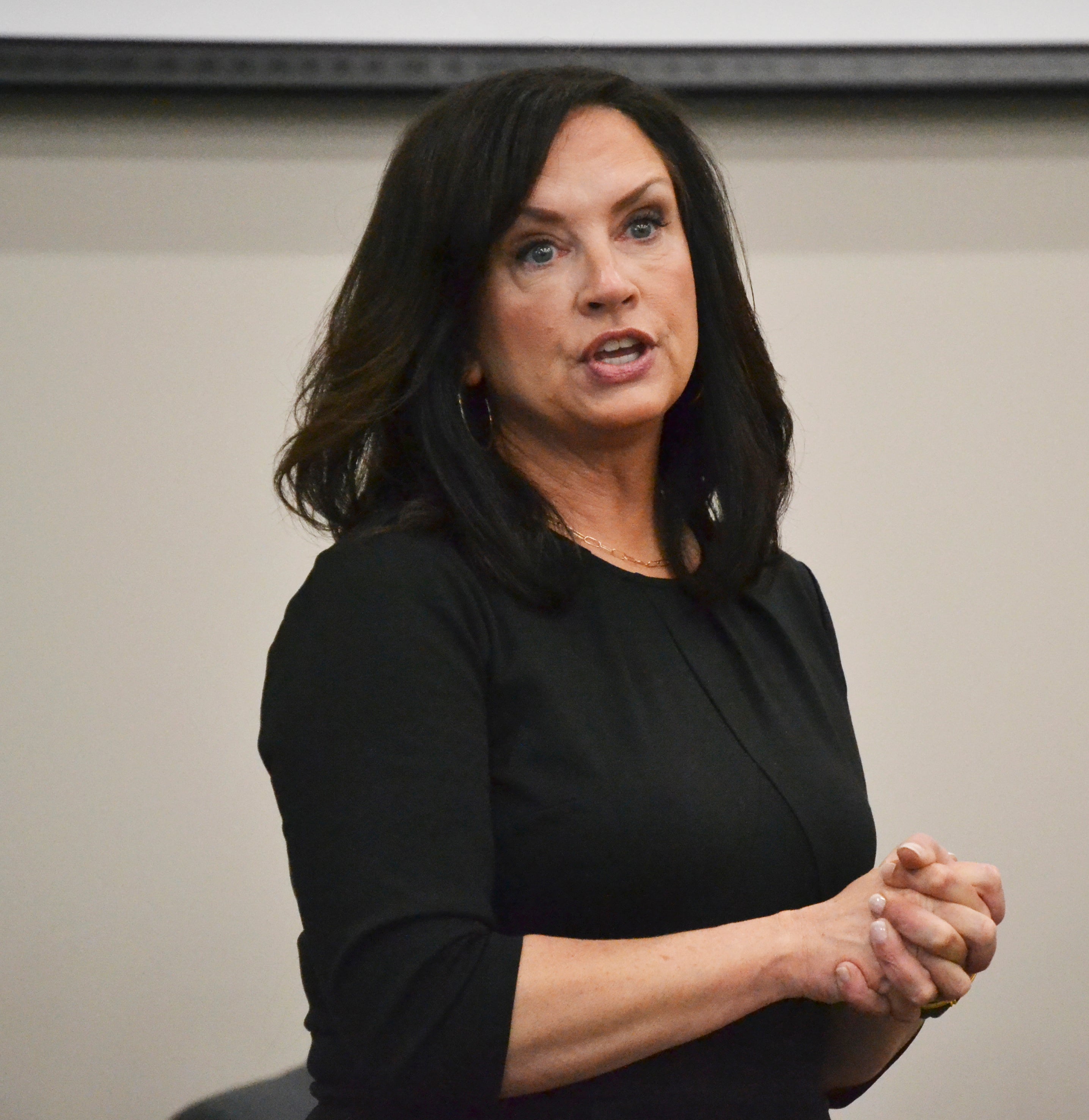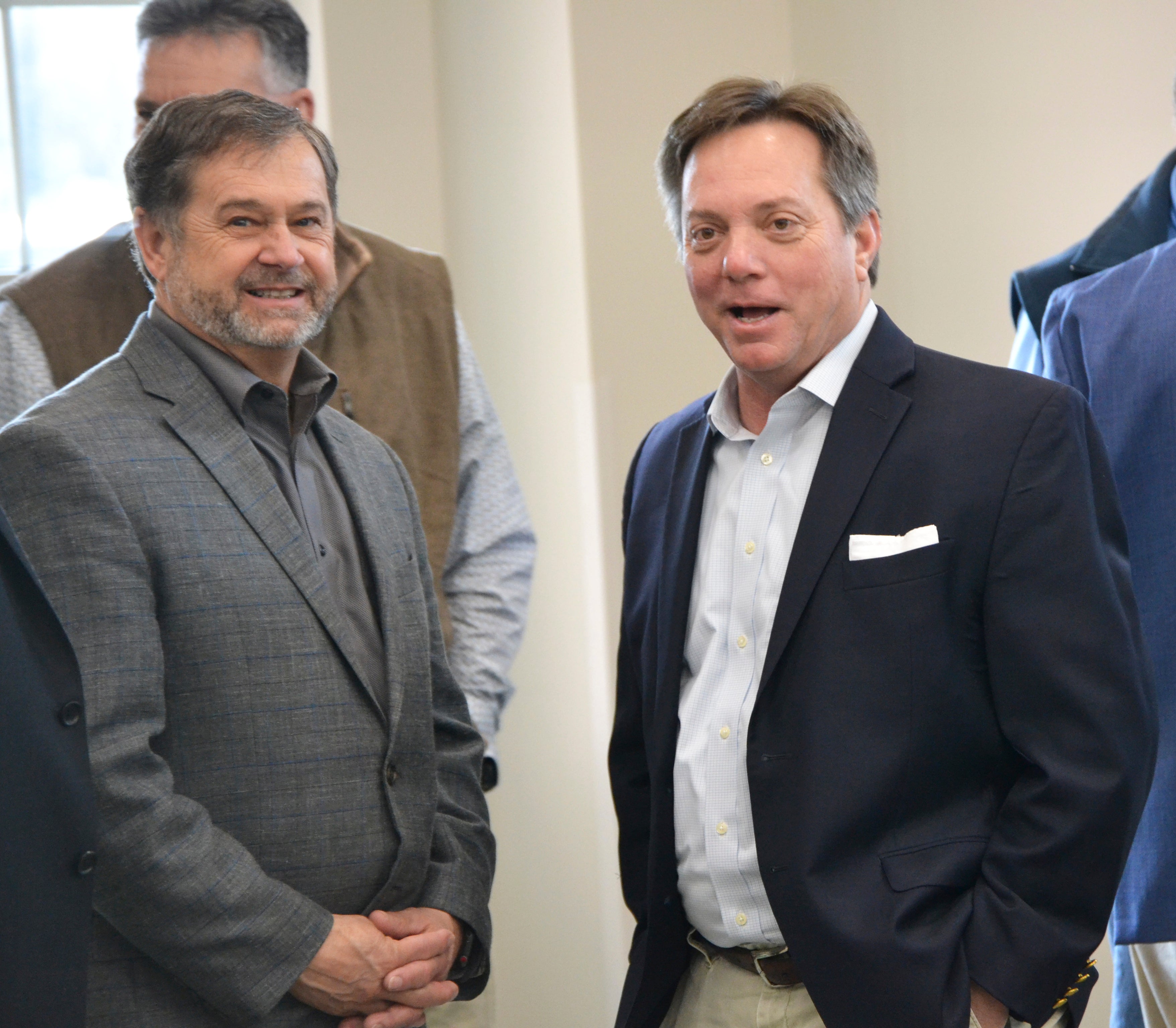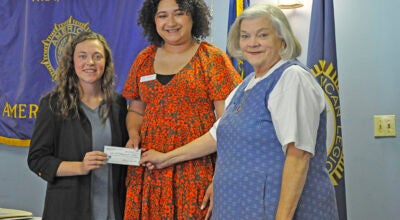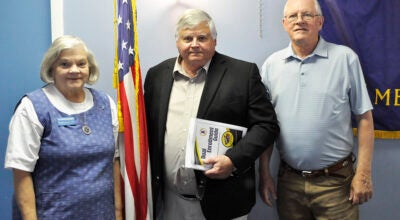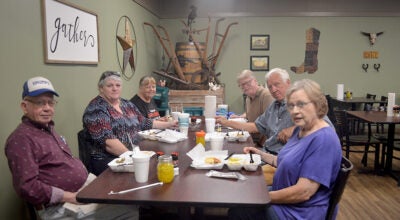Grow Southeast Alabama hosts luncheon for elected officials
Published 1:45 pm Thursday, January 12, 2023
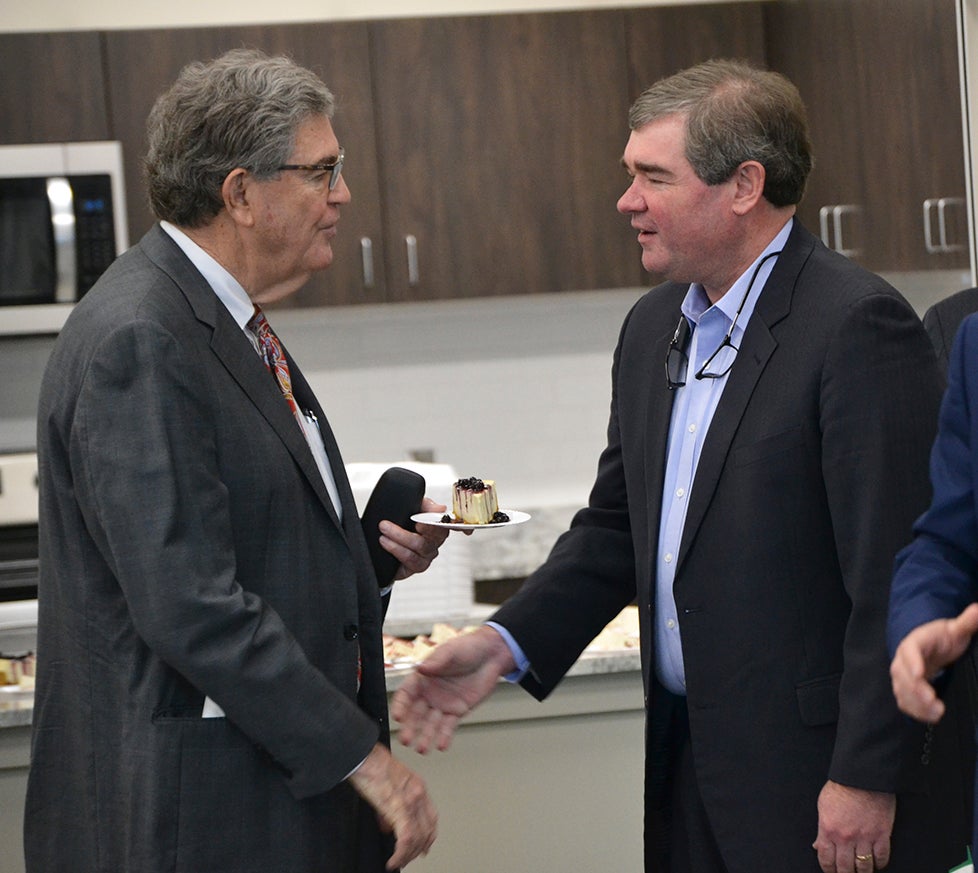
- Troy Mayor Jason Reeves talks to State Senator Billy Beasley at Grow Southeast Alabama’s luncheon in Troy.
|
Getting your Trinity Audio player ready...
|
Grow Southeast Alabama, an 11-county coalition for economic development in the Wiregrass, held a special luncheon for elected officials of its coalition members – and state officials – in Troy on Jan. 12.
The luncheon was held at South Alabama Electric Cooperative in Troy and featured Alabama Senators, State Representatives, Mayors, city officials and county officials from Barbour, Bullock, Butler, Coffee, Covington, Crenshaw, Dale, Geneva, Henry, Houston and Pike Counties.
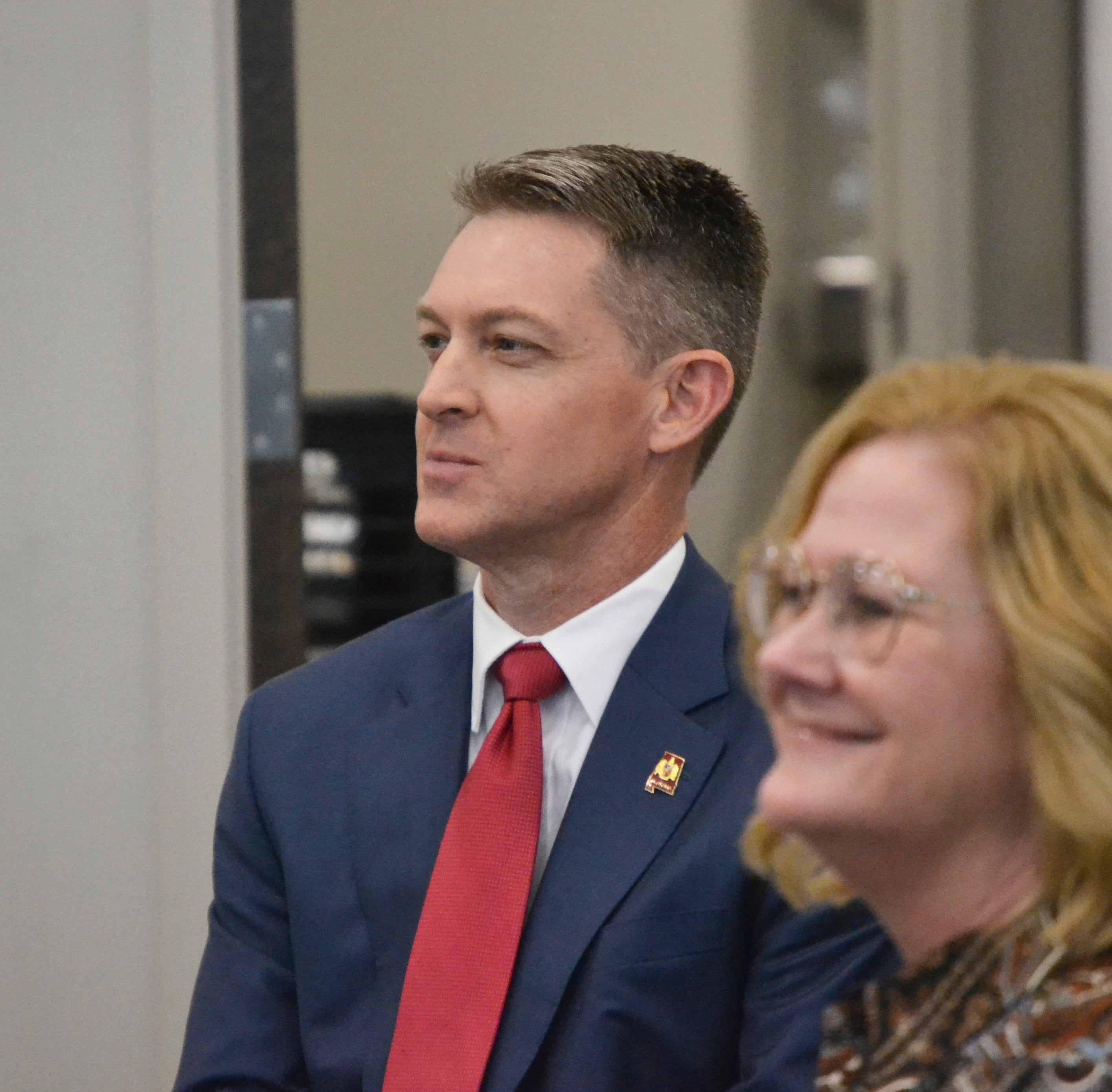
Alabama Secretary of State Wes Allen was also in attendance at the luncheon. (Photos by Josh Boutwell)
The Southeast Alabama Council for Economic Development, or Grow Southeast Alabama, is the coalition of those 11 counties that work together to market the Wiregrass region for growth and economic development opportunities. Grow Southeast Alabama states that it has one purpose, “to work as a team to help business and industry expand and/or relocate to Southeast Alabama.”
Some of the elected officials from The Messenger’s coverage area in attendance included Pike County Economic Development President Chase Cobb, Troy Alabama House of Representative Marcus Paramore – who is also a former Troy City Councilman – and Troy Mayor Jason Reeves. Alabama Secretary of State Wes Allen and Alabama Senator Billy Beasley were also in attendance.
All throughout the year we partner with elected officials – on the state and local level – and occasionally we get help from federal elected officials and we also have on our board several utility partners,” Grow Southeast Alabama Executive Director Melody Lee said. “We have representatives that we work with all throughout the year here today and it’s kind of our way of thanking them for going to bat for us when it comes down to an industry coming to the State of Alabama.
“We have local elected officials that go to bat for the Wiregrass area and say, ‘Look, we have everything you need on the list and we’ll take care of you there.’ They have really helped us, as far as economic growth goes, for our 11 counties in the past few years. Since 2020, Grow Southeast Alabama’s counties have brought over $1 billion to the Alabama economy in new industry and we just want to continue that.”
While the luncheon served as a ‘thank you’ to those elected officials in the room, it also gave elected officials and local and state economic development officials a chance to talk in a one-on-one environment, as well.
“It’s so important, especially when you can get all these people in the room pulling in one direction,” Troy Mayor Jason Reeves said. “There are other areas of the state that are working very hard to grow their workforce, create jobs and do those sorts of things. If we don’t get together on a regional basis and work together then we’ll fall behind.
“We’re all competing but it’s critical that we’re all doing that with a sense of regionalism. That’s why it’s so important to also have the state economical development agencies in the room, to have Wes Allen in the room and our legislative delegation in the room. We can do more together and that’s what this is all about.”
Paramore emphasized the importance of economic development in Pike County.
“The biggest thing is, like I’ve always said, the more economic development we have, the better off all our citizens are,” he said. “We want all of our citizens, their children and their grandchildren to have high paying, good quality jobs and that’s what we’ve always wanted to provide. That’s what this does.
“It may not be a perfect fit for one town or another town but may be perfect for your town. If we all work together then everybody benefits. People from other areas come and get those jobs and take that money back to their communities and it spreads. These types of meetings help to do that.”


